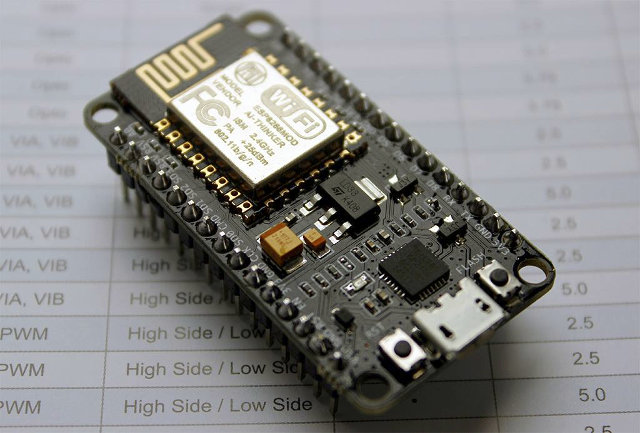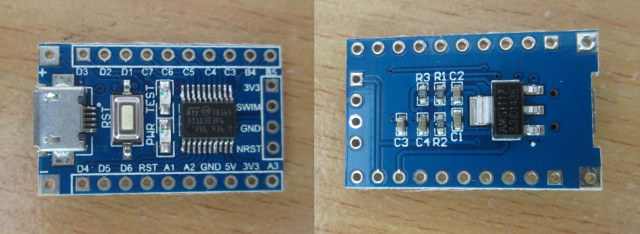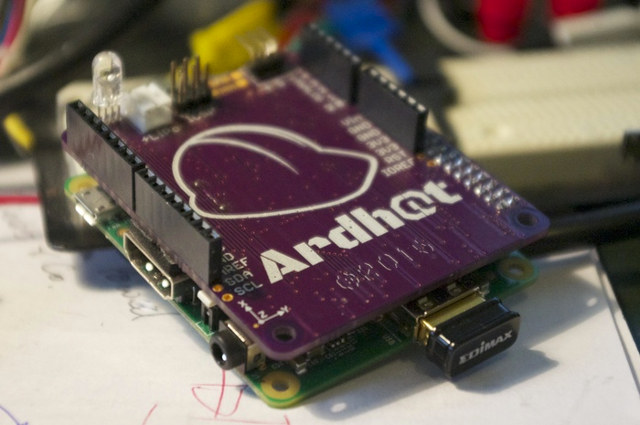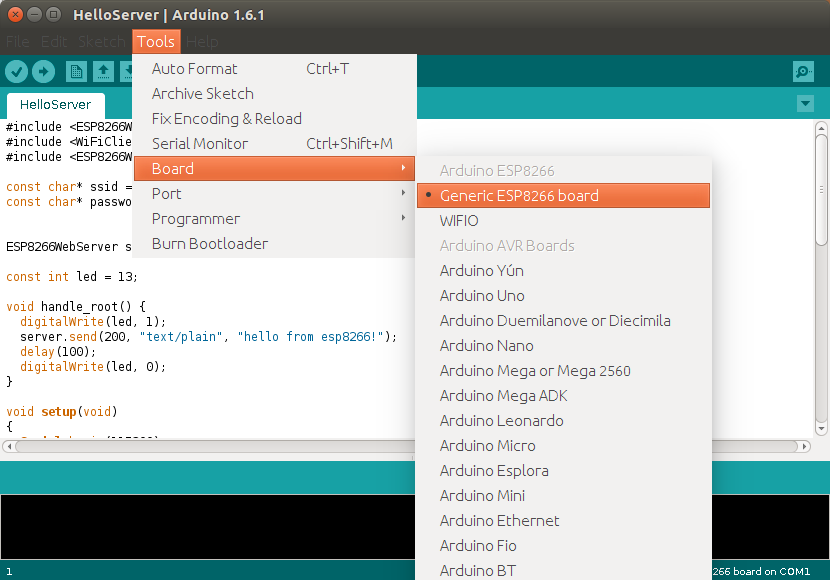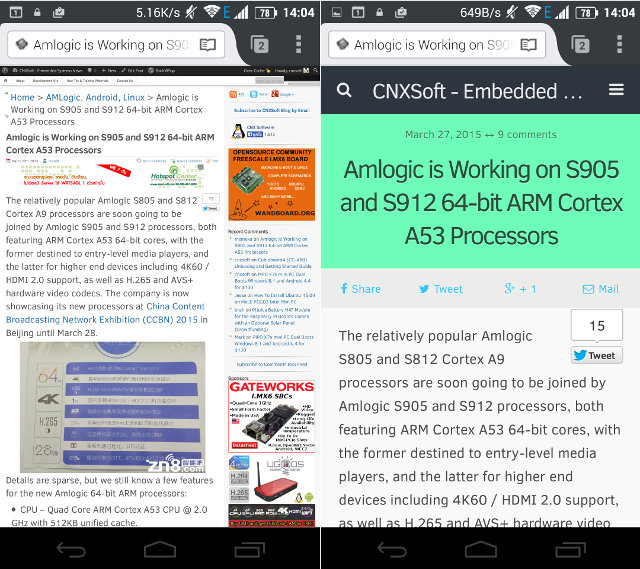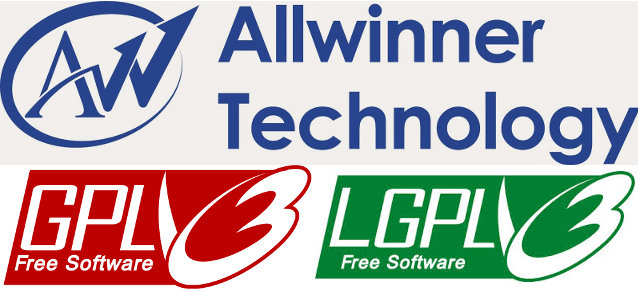Linaro 15.04 has been released with Linux 4.1-rc4, Linux 3.10.79 and 3.14.42 (LSK), and Android 5.1_r3. The Ubuntu image is now based on Vivid instead of Utopic. Android and Debian builds/images have been released for Hikey’s 96boards, Ubuntu Vivid and Android builds have been setup for Qualcomm’s Dragonboard 410c. A new platform, Socionext M8M, has also show in Linaro changelog. I could not find details about M8M, but Socionext is a “new company that designs, develops and delivers System-on-Chip products” and focuses on “imaging, networking and other dynamic technologies”. Their latest press release mentions a 4K media processor with build-in HDMI 2.0 Tx and Rx, so maybe M8M is based on that processor, but I can’t know for sure as they have several chips. Highlights of this release: Linux Linaro 4.1-rc4-2015.05 GATOR updated to version 5.21.1 updated integration-linaro-vexpress64 topic by ARM LT: PCI support added – for Juno r1. Linaro […]
NodeMCU is both a Breadboard-Friendly ESP8266 Wi-Fi Board and a LUA based Firmware
NodeMCU is a LUA based interactive firmware for Expressif ESP8622 Wi-Fi SoC, as well as an open source hardware board that contrary to the $3 ESP8266 Wi-Fi modules includes a CP2102 TTL to USB chip for programming and debugging, is breadboard-friendly, and can simply be powered via its micro USB port. Let’s checkout the hardware first. The latest version of the board (V1.0) has the following specifications and features: Wi-Fi Module – ESP-12E module similar to ESP-12 module but with 6 extra GPIOs. USB – micro USB port for power, programming and debugging Headers – 2x 2.54mm 15-pin header with access to GPIOs, SPI, UART, ADC, and power pins Misc – Reset and Flash buttons Power – 5V via micro USB port Dimensions – 49 x 24.5 x 13mm The hardware documentation for the board can be found on nodemcu-devkit repo, including schematics and PCB layout designed with Altium Designer, […]
How to Program STMicro STM8S $1 Board in Linux
In January, I discovered there was such thing as a one dollar development board based on STMicro STM8S103F3P6 8-bit MCU with 1KB SRAM, 8KB flash, and 640 bytes EEPROM, some GPIOs as well as I2C, UART, SPI, ADC, and PWM signals. Links to documentation and source code were provided, but development tools were only Windows based. However, one of my reader informed me SDCC (Small Devices C Compiler) supported STM8, and development in Linux should be feasible. So I decided to buy the board on eBay for $1.62, as well as an ST_link V2 programmer for STM8 / STM32 for $4.52 in order to flash the firmware. The board came pretty quickly, i.e. within 2 to 3 weeks. But due to a lost package, the programmer took nearly 3 months to reach me, as the seller had to re-send after I failed to receive it within 2 months. It comes […]
ARDHAT adds Arduino Shield Compatibility, an ISM Band Radio to Raspberry Pi and ODROID-C1 Boards (Crowdfunding)
NinjaBlocks created Pi Crust add-ons board adding a 433MHz radio and Arduino compatibility to the Raspberry Pi Model A & B a few years ago, but the product has since been removed from their store. But a startup called ubIQio has now created a similar product compatible with Raspberry Pi Model A+, B+ and B2, as well as ODROID-C1 which also comes with a 40-pin R-Pi header. The ARDHAT board is a HAT compatible add-on board with an Atmel MCU, Arduino headers, as well as an optional long range mesh ISM radio (433, 868 and 915 MHz) and various sensors. There are four versions of the board: Basic Ardhat, Ardhat-I, and Ardhat-W and Ultra, which share the following specifications: MCU – Atmel MCU @ 16MHz Headers and I/Os Arduino compatible header accepting 5V Arduino shields 12 ch PWM O/P, 6 ch analog I/P Real-time Clock Programmable Power/Navigation combo switch Programmable […]
ESP8266 Wi-Fi Module is Now Supported in Arduino IDE
ESP8266 revolutionized the IoT world by offering an ultra low cost Wi-Fi solution either standalone or connected to a micro-controller board via SPI or UART. There are plenty of tutorials on the web to play with the Wi-Fi module, but it’s only recently an Arduino IDE has added support for ESP8266. If you want to try it, you can download the binary for Linux, Windows, or Mac OS X. Since my computer is running Ubuntu 14.04, I download and extracted arduino-1.6.1-linux64.tar.xz to install it in my PC. Now simply run the arduino script to start the IDE, and select to Tools->Board->Generic ESP8266 board. I don’t own an ESP8266 module myself, but Olimex tried it on their ESP8266-EVB: They connected a serial debug board and selected Tools->Port->/dev/ttyUSB0 in the IDE Selected Tools-> Programmer->esptool Loaded Blink example, and modified it to turn on and off the relay on their evaluation board. If […]
WordPress Mobile Caching with Zencache PRO Cache Plugin
This post has nothing to do with embedded systems, but I’ll document some of the changes I made to the website in the last few days for better mobile support. Recently Google sent me a message recommending to “Fix mobile usability issues found on http://www.cnx-software.com” via Webmaster Tools, and a user recently complained about readability from his smartphone. So I had to fix this issue. This involves WordPress cache plugins and WPtouch Mobile Plugin, the latter automatically generates a mobile version of the website as shown on the right in the screenshot above. In theory, it’s very easy, you simply install WPtouch Mobile plugin, and mobile user agents get served the mobile page while other get the desktop version. But when you mix it with a cache plugin, it can become more complicated, and desktop user may be served mobile pages, and mobile user may get desktop pages. The easiest […]
Allwinner CedarX Media Codec Library GPL/LGPL Compliance Update
Last month, I wrote about potential open source licenses and VP6 copyright infringement by Allwinner with their CedarX media codec library, and then since there’s been a few developments. First, Allwinner sent me an email saying they’ve now updated Cedarx library and referring my previous article. Here’s an extract: Here, I have some update of the Allwinner’s open-source status. We have done a lot of discussion with the developers from the linux-sunxi communication about the software license of CedarX. For each question or requirement asked by the developers, Allwinner has identify and try to give the best solution. Now, we believe Allwinner’s CedarX license is fully compliant and resolves concerns from the community. And you can take the announcement https://www.mail-archive.com/[email protected]/msg10597.html as a reference. Allwinner is always supporting the open-source, and try to do better and better. You can see some update on the github https://github.com/allwinner-zh, and some feedback from developers: […]
Google Summer of Code 2015 is Now Open for Student Applications
Google has now announced that students applications for Google Summer of Code (GSoC) are now open. Students can get paid up to $5,500 to work on various open source projects selected for the event. Fewer companies have been accepted this year, and even big names like the Linux Foundation and Mozilla got their application rejected. There are still over 137 open source projects to work on including: MinnowBoard project – Potential software projects for the Intel Atom embedded board include making low speed I/O buses more accessible via intermediate open source libraries (e.g. SMBus/PMBus/Wiring libraries), and improving the open source firmware. lowRISC SoC project – Potential projects: Schematic Viewer for Netlists (SVG/JavaScript), open source FPGA compilation flow using Yosys, accessing the OpenCores ecosystem, etc… BeagleBoard.org – Lots of project ideas relying on the BeagleBone Black board, dealing with Linux kernel support for embedded devices and interfaces, ARM processor support in […]



